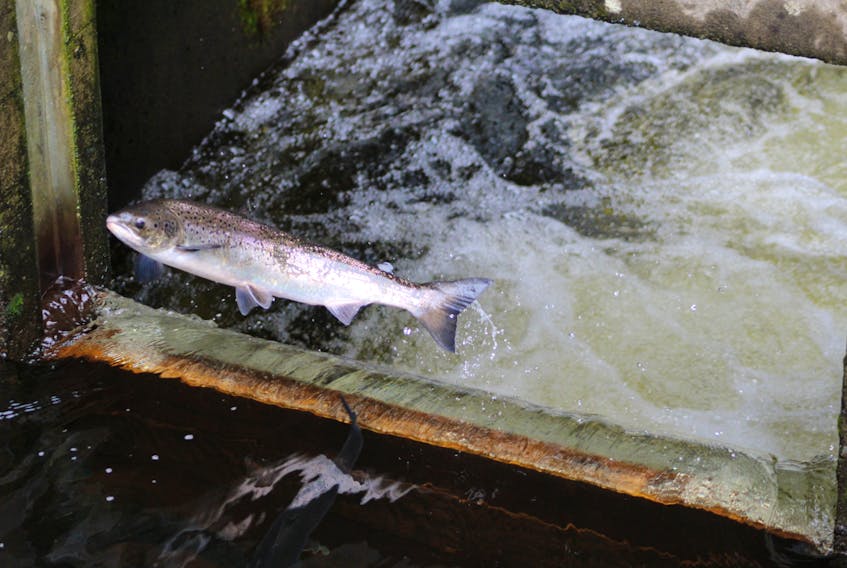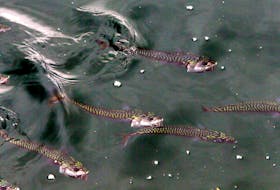An increase in the number of Atlantic salmon that anglers can keep in Newfoundland and Labrador has Appleton angler Dennis Simms calling it a good step forward.
“I’m happier than I was,” Simms said of the news.
Last year’s season had a one-retention fish allocation, along with a delayed opening and ended late July instead of September.
The Department of Fisheries and Oceans (DFO) Canada issued a press release, May 17, stating it would invoking a retention limit of one salmon on Class 2 rivers and a retention limit of two fish on Class 4, Class 6 and unclassified.
Catch and release, set at three fish per day, remains unchanged.
The season is scheduled to run from June 1 to Sept. 7 in Newfoundland, and, June 15 to Sept. 15 in Labrador.
Simms, who also guides on the Gander River, was pleased to see the increases.
Going through the review process last fall, despite an increase in 2018 returns on most counting fences over the previous year, Simms had concerns there would be a status-quo rollover from 2018.
It was a year, he said, that was filled with ambiguity and confusion that impacted anglers and local business.
Working as a guide, Simms lost half of his business as result.
He feels the additional licences could re-energize the angling economy.
“I can see anglers being more enthusiastic, which will help boost local businesses,” he said.
Fair decision
Bruce Andrews, president of the Exploits River Environment Resources Management Association, called the three-fish allocation fair.
“I’m sure most retention anglers would have liked to have been able to retain more fish, but it’s a good starting point moving forward,” he said.
The Exploits River has Class 6 designation, which allows for the retention of two fish.
Andrews assumes it will draw more people to the river as well.
“At this point in time last year when the announcement was made (with one fish only) we had a lot of people who cancelled their reservations at Sanger Park; that doesn’t seem to be the case at this point in time,” he said.
Andrews doesn’t see a second tag depleting the Exploit’s River stock, as not all anglers fill their tags.
But it’s something ERMA is cognizant of.
The Exploits River traditionally sees approximately 26,000 fish annually. In 2018, according to DFO fishway counts, the Exploits River’s count was 18,323 in 2018. However, this was up from 15,563 the previous year.
“We are down, so we have to watch that very carefully,” he said.
Skepticism remains
From the perspective of the Citizens Outdoors Rights Alliance (CORA), the announcement was brief in detail.
It is stated, in the DFO release, the implementation of a new multi-faceted environmental protocol would be available in the 2019-20 Angler's Guide.
“It’s an improvement over last year, but we’re waiting for all the details which will be coming out in the angling plan,” said Alliance president Gary Gale. “We want to see over and above if there are any conditions," attached to the limits.
One such condition he’s waiting on is whether or not there will be an in-season review.
“We don’t have a problem with DFO doing a review, but the bottom line is they should not use it to change the plan they announce,” he said.
In 2017, DFO changed angling regulations that included retention angling, to just catch and release following poor salmon returns after a mid-season review.
“They should stick to the plan, and any changes to be made would have to be future changes,” he said. “But from what we’ve seen, our interpretation so far is it’s certainly an improvement over the last year.”
over the last year.”









